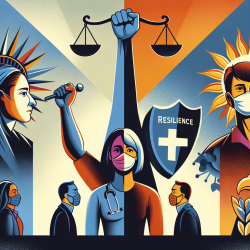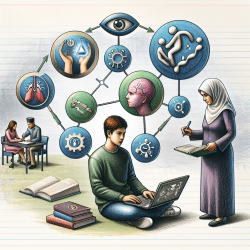The COVID-19 pandemic has placed unprecedented stress on mental health psychology practitioners (MHPPs). As the demand for mental health services surged, so did the challenges faced by those providing these essential services. The research article titled Individual factors in the relationship between stress and resilience in mental health psychology practitioners during the COVID-19 pandemic offers valuable insights into how MHPPs can build resilience and manage stress more effectively.
Key Findings from the Research
The study highlights the significant impact of both pre-pandemic and COVID-19-related stress on the resilience of MHPPs. Key individual factors such as optimism, burnout, and secondary traumatic stress were found to mediate the relationship between stress and resilience. Understanding these factors can help MHPPs develop strategies to enhance their resilience.
Practical Tips for Building Resilience
- Foster Optimism: Optimism can be a powerful tool in managing stress. Practitioners should work on developing a positive outlook by setting realistic goals and focusing on the aspects of their work that bring satisfaction and joy.
- Manage Burnout: Burnout can severely impact mental health and resilience. MHPPs should prioritize self-care, seek supervision, and set boundaries to avoid overextending themselves.
- Address Secondary Traumatic Stress: Exposure to clients' trauma can lead to secondary traumatic stress. Practitioners should engage in regular debriefing sessions, seek peer support, and practice mindfulness to manage these symptoms.
Encouraging Further Research
While this study provides a comprehensive look at the factors influencing resilience, it also opens the door for further research. MHPPs are encouraged to stay informed about new findings and consider participating in studies to contribute to the collective understanding of stress and resilience in their field.
To read the original research paper, please follow this link: Individual factors in the relationship between stress and resilience in mental health psychology practitioners during the COVID-19 pandemic.










